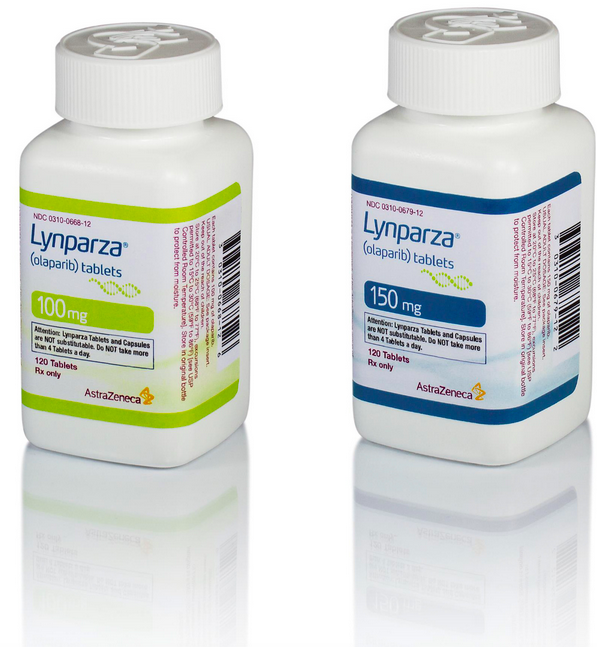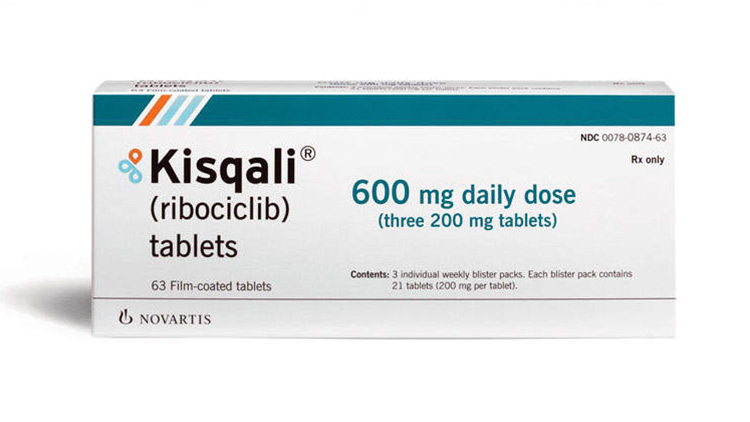Lynparza (olaparib) vs Kisqali (ribociclib)
Lynparza (olaparib) vs Kisqali (ribociclib)
Lynparza (olaparib) is a targeted therapy known as a PARP inhibitor, primarily used to treat certain types of breast, ovarian, fallopian tube, or primary peritoneal cancer in individuals with specific genetic mutations (BRCA1/2 or other homologous recombination repair mutations). Kisqali (ribociclib) is a CDK4/6 inhibitor that is used in combination with hormone therapy to treat HR-positive, HER2-negative advanced or metastatic breast cancer. The choice between Lynparza and Kisqali would depend on the patient's specific type of cancer, genetic profile, hormone receptor status, and the presence of metastasis, which should be discussed with a healthcare provider to determine the most appropriate treatment plan.
Difference between Lynparza and Kisqali
| Metric | Lynparza (olaparib) | Kisqali (ribociclib) |
|---|---|---|
| Generic name | Olaparib | Ribociclib |
| Indications | Ovarian, breast, pancreatic, and prostate cancers | HR-positive, HER2-negative advanced or metastatic breast cancer |
| Mechanism of action | Poly (ADP-ribose) polymerase (PARP) inhibitor | Cyclin-dependent kinase 4/6 (CDK4/6) inhibitor |
| Brand names | Lynparza | Kisqali |
| Administrative route | Oral | Oral |
| Side effects | Anemia, nausea, fatigue, vomiting, respiratory infections, blood clots | Neutropenia, nausea, infections, fatigue, diarrhea, leukopenia |
| Contraindications | Hypersensitivity to olaparib, breastfeeding | Hypersensitivity to ribociclib, QT prolongation, liver impairment |
| Drug class | PARP inhibitor | CDK4/6 inhibitor |
| Manufacturer | AstraZeneca and Merck & Co. (MSD outside the US and Canada) | Novartis |
Efficacy
Lynparza (Olaparib) Efficacy in Breast Cancer
Lynparza, also known by its generic name olaparib, is a targeted therapy known as a PARP inhibitor. It is particularly effective in treating breast cancer patients who have a mutation in the BRCA1 or BRCA2 genes. Clinical trials have demonstrated that olaparib significantly improves progression-free survival in patients with HER2-negative metastatic breast cancer who are BRCA mutation carriers. The efficacy of olaparib was highlighted in the OlympiAD trial, where it was shown to reduce the risk of disease progression or death by 42% compared to standard chemotherapy in this patient population.
Furthermore, the use of Lynparza has been associated with a better quality of life compared to chemotherapy, with patients experiencing fewer severe side effects. This improvement in quality of life is a critical consideration in the management of metastatic breast cancer, where the goal is not only to extend life but also to maintain its quality. However, it is important to note that olaparib’s efficacy is specifically linked to the presence of BRCA mutations, and its use is not indicated for breast cancer patients without these genetic markers.
Kisqali (Ribociclib) Efficacy in Breast Cancer
Kisqali, or ribociclib, is a CDK4/6 inhibitor used in combination with an aromatase inhibitor or fulvestrant for the treatment of certain types of advanced or metastatic breast cancer. Specifically, it is indicated for hormone receptor-positive, human epidermal growth factor receptor 2 (HER2)-negative breast cancer. The MONALEESA clinical trials have provided substantial evidence for the efficacy of ribociclib in this setting. In the MONALEESA-2, -3, and -7 trials, ribociclib consistently improved progression-free survival when compared with placebo plus endocrine therapy.
Moreover, in the MONALEESA-7 trial, which focused on premenopausal women, ribociclib in combination with endocrine therapy significantly increased overall survival. This marked the first time a CDK4/6 inhibitor demonstrated a significant survival benefit in a clinical trial for premenopausal women with hormone receptor-positive, HER2-negative advanced breast cancer. The results from these studies have positioned ribociclib as a key component of first-line therapy for the specified patient group, offering a new hope for extending life and improving outcomes in advanced breast cancer.
Regulatory Agency Approvals
Lynparza
-
European Medical Agency (EMA), European Union

-
Food and Drug Administration (FDA), USA

-
Health Canada

-
Therapeutic Goods Administration (TGA), Australia

-
Medsafe (NZ)

Kisqali
-
European Medical Agency (EMA), European Union

-
Food and Drug Administration (FDA), USA

-
Health Canada

-
Therapeutic Goods Administration (TGA), Australia

-
Medsafe (NZ)

Access Lynparza or Kisqali today
If Lynparza or Kisqali are not approved or available in your country (e.g. due to supply issues), you can access them via Everyone.org.
How it works

Make an enquiry
Choose the medicine you want to buy, answer a couple of questions, and upload your prescription to speed things up. We’ll get back to you within 24 hours.


Make an enquiry
Choose the medicine you want to buy, answer a couple of questions, and upload your prescription to speed things up. We’ll get back to you within 24 hours.


Breeze through the paperwork
We'll guide you through the required documents for importing unapproved medicine, ensuring you have all the necessary information.


Get a personalized quote
We’ll prepare a quote for you, including medicine costs and any shipping, administrative, or import fees that may apply.


Receive your medicine
Accept the quote and we’ll handle the rest - sourcing and safely delivering your medicine.

Some text on this page has been automatically generated. Speak to your physician before you start a new treatment or medication.
Let's talk
If you have any questions, call us or send us a message through WhatsApp or email:
Contact us




